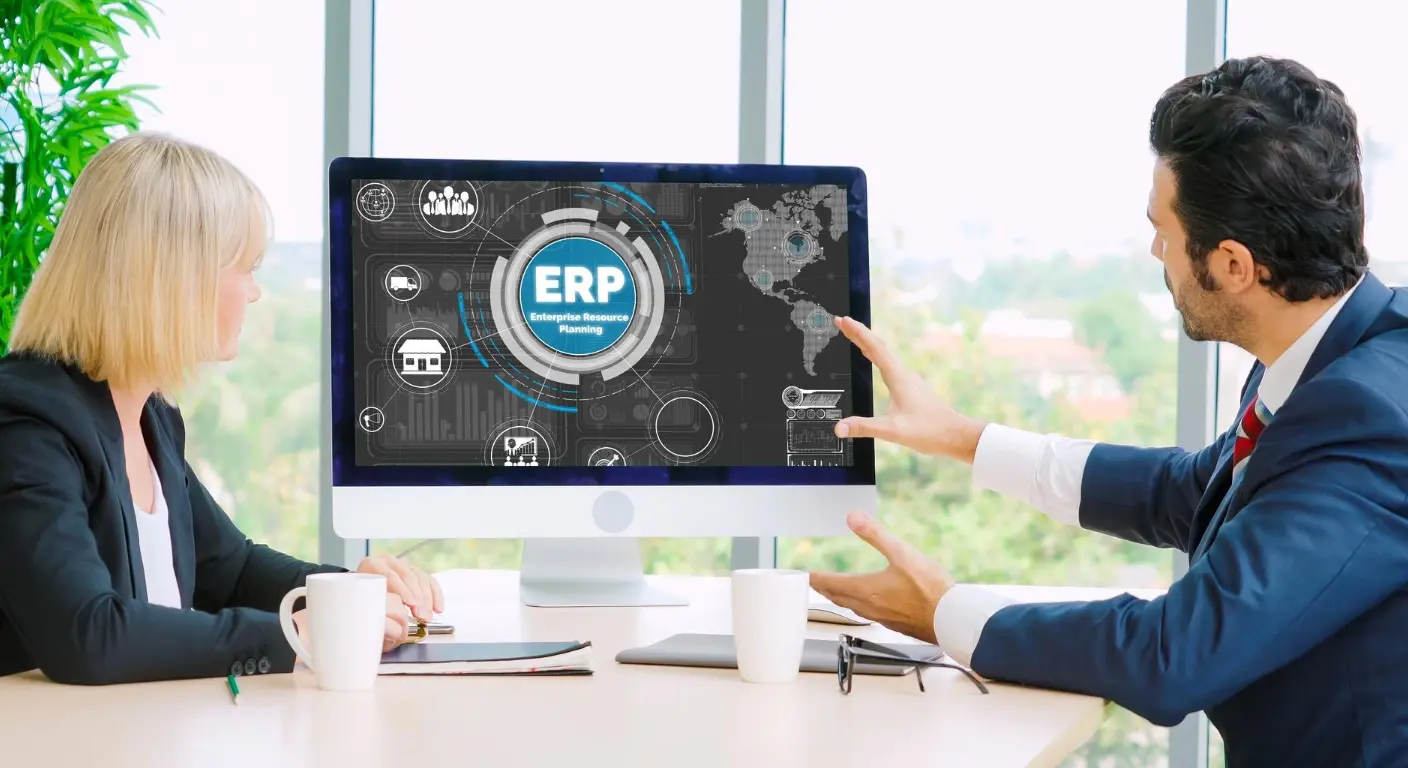

Independent consulting: Why the first-principle approach saves ERP and digitalisation projects

From fighting symptoms to causes: why up to 80% of transformation projects ...
- Tags:
- ERP Selection
- ERP Consulting
- ERP

From fighting symptoms to causes: why up to 80% of transformation projects fail to achieve their goals
You've heard it many times: "The project failed", "We didn't achieve the goals", "The ROI is not measurable". These sentences echo through the offices of medium-sized companies that have invested a lot of money in digitalization or ERP projects only to end up with an expensive isolated solution or a system that is barely used. But why do so many of these projects fail?
The answer often lies not in the technology itself, but in the consulting approach. The market is flooded with consultants who promote "best practices" and sell off-the-shelf solutions.
They superficially scan the symptoms, propose a ready-made solution and disappear before the first implementation problems arise. The result is a kind of "consulting quick-fix" that ignores the root causes.
What the market really needs are consultants who not only see the obvious problems, but also the hidden weaknesses and untapped potential. We are talking here about the strategic depth that goes beyond the simple "what" and focuses on the "why" and "how". The traditional approach leads to a critical market gap: standardized solutions are offered for unique challenges.
The Dreher approach: first principles instead of best practices
At Dreher Consulting, we don't believe in ready-made solutions. We believe in the power of the first-principle approach. This approach, popularized by personalities like Elon Musk, means breaking a problem down to its most fundamental, undeniable truths and developing a new solution from there. Instead of asking "How did others do it?", we ask: "What are the building blocks of this problem?"
This may sound like a lot of effort, but it is precisely this approach that leads to sustainable success and measurable results. Here are three anonymized customer projects that demonstrate this approach in practice:
Case Study 1: ERP transformation in wholesale
A medium-sized wholesale company with complex logistics processes was facing the failure of its ERP implementation. An external service provider had implemented the "best practice" modules of a large provider, but the internal processes were ignored. The result: a rigid system that hindered more than it helped.

We didn't change the software. We analyzed the problem from scratch. Instead of adapting the employees to the rigid system, we redefined the core logistics processes and adapted the system accordingly. We not only digitally mapped the logistics processes, but optimized them so that they ran 35% more efficiently. Suddenly, the system was no longer an obstacle, but a competitive advantage. The ROI was not only achieved after 18 months, but exceeded.
Case Study 2: Digitalization strategy in the food industry
A food manufacturer had various isolated solutions for marketing, sales and production. There was a feeling of "being digital", but there was a lack of overview and control. The previous consultancy recommended a costly complete system that would overwhelm the employees.

Instead, we looked at the fundamental customer and production processes. It turned out that the biggest bottleneck was data collection. Instead of immediately investing in expensive software, we developed a step-by-step strategy based on the integration of existing systems and the gradual automation of manual processes. Within 6 months, we were able to automate data collection, resulting in 15% faster production cycles and significantly improved supply chain visibility.
Case Study 3: Sustainability integration in Professional Services
A service company saw sustainability as a tedious compliance task. The legal requirements were a burden that had to be ticked off somehow. The usual consulting approach here would have been to carry out an audit and work through a checklist.

We saw it differently. We positioned sustainability not as a burden, but as an opportunity for internal efficiency and employer branding. We not only analyzed the ISO 27001 requirements for the IT infrastructure, but also redesigned the processes to make them more sustainable. The result was a 50% reduction in paper consumption and a noticeable increase in employee motivation. Compliance was a side effect, not the main objective.
How to recognize real consulting quality: A decision framework
Choosing the right consulting partner is one of the most important strategic decisions for a company. Here is a brief framework to help you separate the wheat from the chaff:
The 5 critical questions to ask before choosing a consultant
-
Are they asking the right questions? A good consultant asks uncomfortable questions. They not only ask about the symptoms, but also about the causes. They question your assumptions and encourage you to rethink.
-
Do they have a plan before they have the data? If someone immediately sells you a solution before they have understood your processes in detail, this is a clear warning sign.
-
Do they have anonymized, concrete case studies? Ask for anonymized examples from your industry. Ask about the challenges, the approach and the measurable results.
-
Are you talking about processes or just technology? Technology is just a tool. The focus should always be on optimizing processes and people.
-
How do you measure success? Don't be blinded by abstract promises. Ask for concrete metrics and a plan on how success will be measured and ensured after the project phase.
Red flags: How to recognize standard consulting
-
The "We always do it this way" sentence: Every company is unique.
-
Buzzword bingo: If you hear a sentence that consists only of buzzwords (e.g. "We transform your digital economy through agile AI platforms"), run.
-
No measurable KPIs: If success can't be measured, it can't be proven.
The next steps for your project success
Whether it's the introduction of a new ERP system, the development of a digitalization strategy or the integration of sustainability - the path to success begins with a paradigm shift. It's about not just scratching the surface, but breaking things down to their basic building blocks. It is the art of understanding the "why" before planning the "how".
Are you ready to look at your challenges from a new perspective?


Article Overview
- First principles instead of best practices
- Case study 1: ERP transformation in wholesale
- Case study 2: Digitalisation strategy in the food industry
- Case study 3: Sustainability integration in professional services
- How to recognise genuine consulting quality: a decision framework
- Red flags: how to recognise standard consulting
/Herr_Dreher_500x500.jpg)



